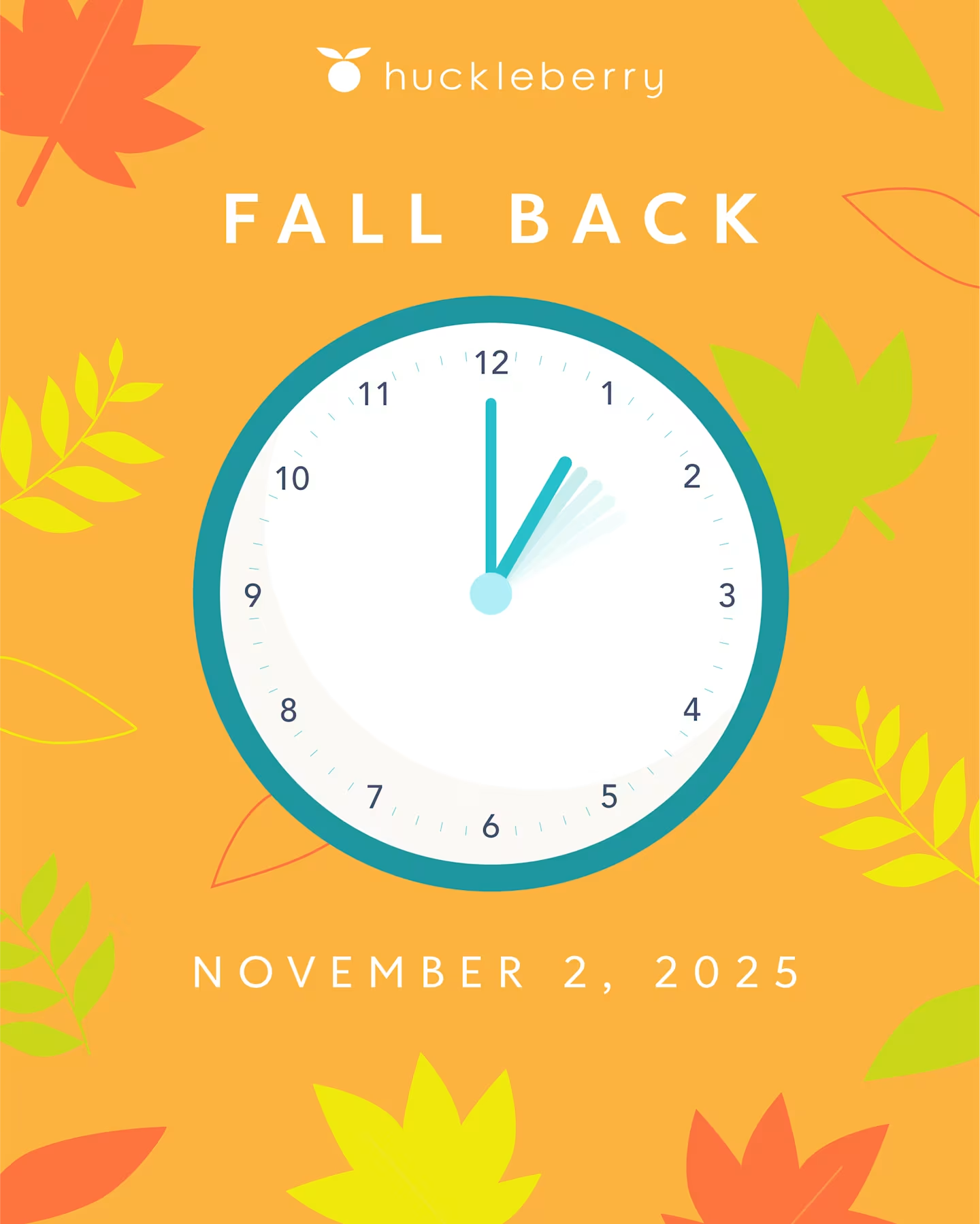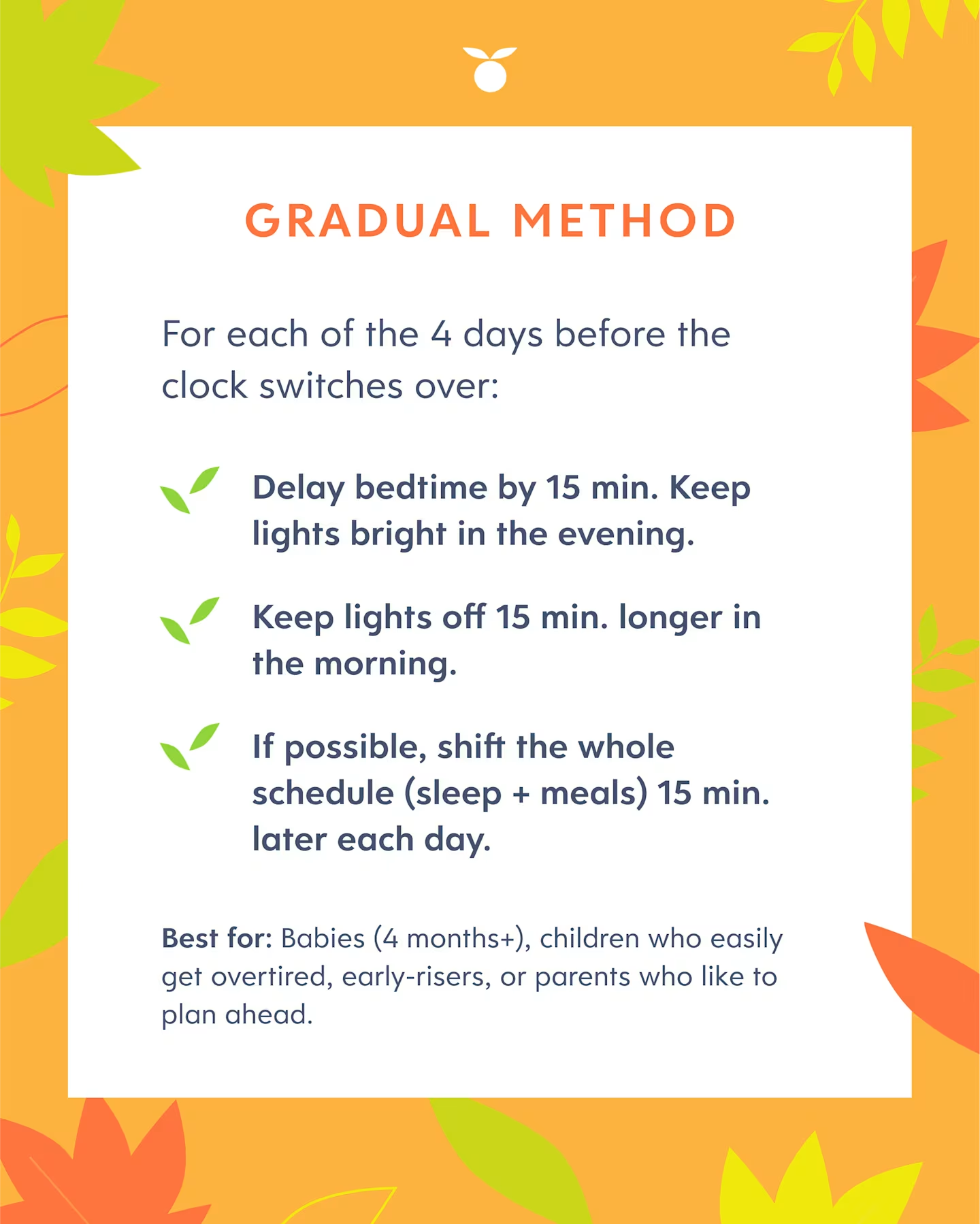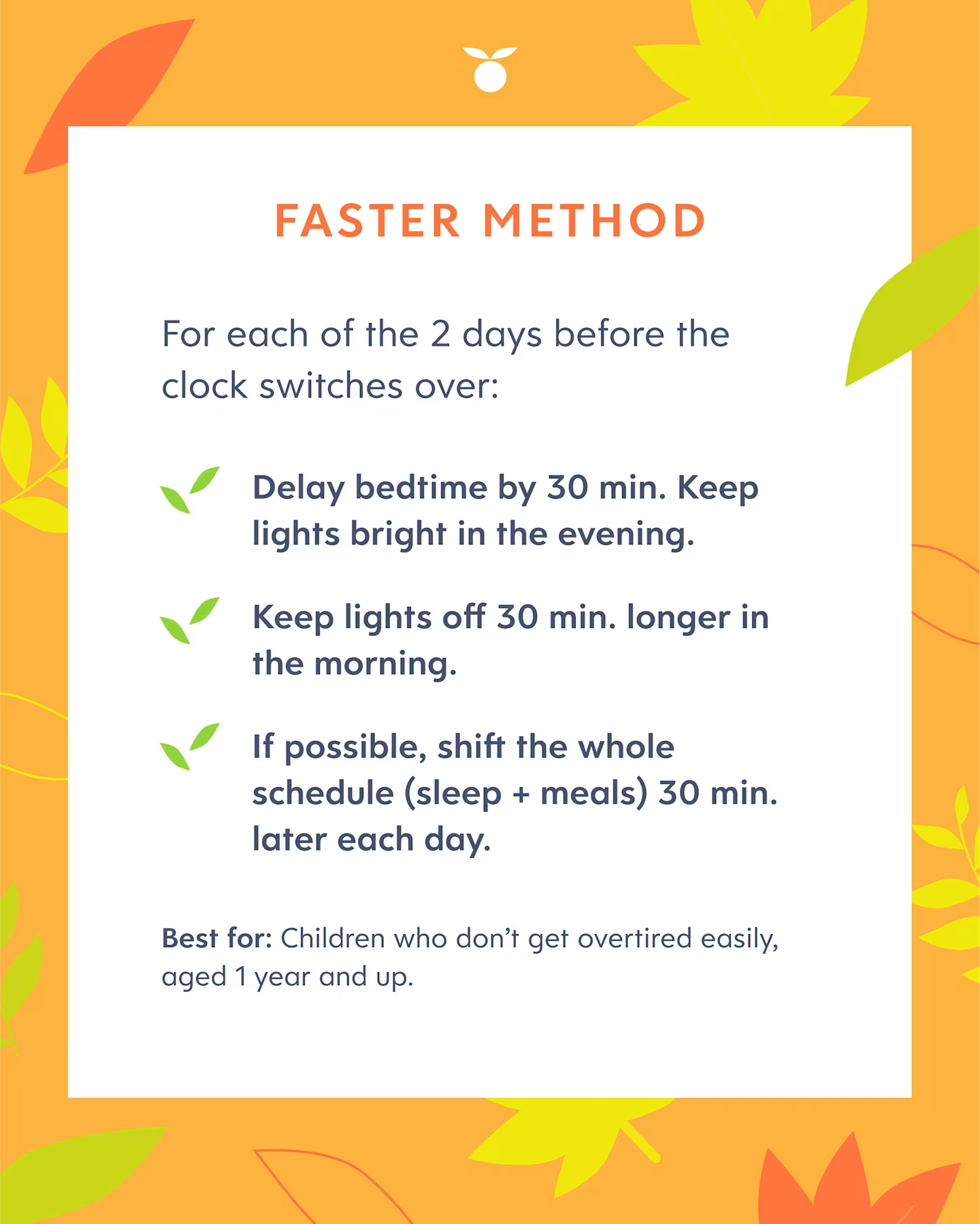How to adjust your baby’s sleep for the fall daylight saving time change
Updated Oct 16, 2025

Autumn is a delightful time of year. The air turns crisp, leaves change color, and it's time to cozy up in your woolen layers. It’s also the end of daylight saving time in the U.S. on Sunday, November 2, 2025 (and a week earlier in Europe, ending on October 26, 2025).
That means the clocks move one hour earlier and you’re treated to an extra hour of sleep with the time change — unless you have a young child.

Every year we hear people mention that their toddler did some twilight zone math and instead of sleeping in an extra hour, woke up 2 hours earlier. It only adds salt to the wound to have expected more shuteye, then get robbed of it.
Given Huckleberry's focus on improving children’s sleep, we wondered whether there is more to this. How does daylight saving really affect children? Is there actually a warped effect on them and if so, how can we prevent it?
Why does the time change affect a baby's sleep?
After the newborn stage, wake times are largely governed by the circadian rhythm or internal clock []. Although the clock on the wall might say it’s an hour earlier after the fall-back time change, a baby’s internal clock will tell a different story. That means that your baby is likely to wake earlier until their internal clock is programmed to wake later, a process that involves shifting the circadian rhythm through light exposure.
Methods to adjust baby sleep for the fall back time change
Since sleep times are also guided by sleep pressure, it can backfire to suddenly put your child to bed an hour later and expect that they’ll wake at their usual time in the morning. Opting to abruptly move bedtime an hour later can lead to disrupted sleep patterns and early waking.
There is hope! Here are two strategies to manage the autumn time change and minimize disruptions to your child’s sleep:
Gradual method
This is best for babies 4 months and older, children who easily get overtired, early risers, and/or parents who like to plan ahead.
For each of the 4 days before the clock switches over:
Delay bedtime by 15 minutes and keep bright lights on in the evening.
Keep the lights off 15 minutes longer in the morning.
If possible, shift the entire sleep and eating schedule 15 minutes later each day.

Faster method
This is best for children who don’t get overtired easily and are aged 1 year and up.
For each of the 2 days before the clock switches over:
Delay bedtime by 30 minutes and keep bright lights on in the evening.
Keep the morning lights off 30 minutes longer in the morning.
If possible, shift the entire sleep and eating schedule 30 minutes later each day.

Does adjusting your child’s sleep for DST pay off?
We looked at a data set of about 2,000 children from across the U.S. and Canada. This data set was pulled from our company’s user base (we have a tracking app and pair pediatric sleep experts with AI to for children). We then examined how children were affected by the previous year’s time change.
44% of parents corrected for the daylight saving time change by putting their children to sleep 30 minutes or later than usual the night before. That’s pretty good.
However, 34% of children end up waking 30 minutes or even earlier than usual in the morning after DST. For example, if a child usually woke up at 7:00 AM before the time change, they ended up waking at 6:30 AM or earlier, even with parental adjustment. This was more pronounced for toddlers and preschoolers than for babies (40% vs. 32%).
Furthermore, 18% woke an extra hour or earlier, according to the “new” time on the clock.
So while the majority will wake up either close to their usual time or even sleep in, there’s still a solid one-third of families who should not expect any extra slumber.
The takeaway is to still take steps to adjust for the end of daylight saving time, so your child doesn’t get stuck in an early waking cycle. However, don’t be disappointed if you miss out on the extra hour of sleep because you’re in good company.
Takeaway
Time changes affect a baby's sleep because wake times are largely governed by the circadian rhythm (internal clock). So even though the clock says it's an hour earlier (after the fall-back time change), a baby's internal clock hasn't adjusted. That means your baby is likely to wake earlier until their internal clock programs to wake later, through light exposure and time.
Strategies to manage the autumn time change include gradually changing sleep times in the 4 days leading up to the time change. This method is best for babies over 4 months who easily get overtired, are early risers, and/or parents who like to plan ahead.
A faster method that's best for children who are 12 months+ and don't get overtired easily is delaying bedtime by 30 minutes each of the 2 days leading up to the clock switching over.
Don't fret if your child takes some time to adjust to the time change even if you took steps to adjust in the days beforehand. Sometimes it just takes a few days for little ones to return to their typical sleep times.
Share article:
Note: The content on this site is for informational purposes only and should not replace medical advice from your doctor, pediatrician, or medical professional. If you have questions or concerns, you should contact a medical professional.
1 Sources
Share article:





